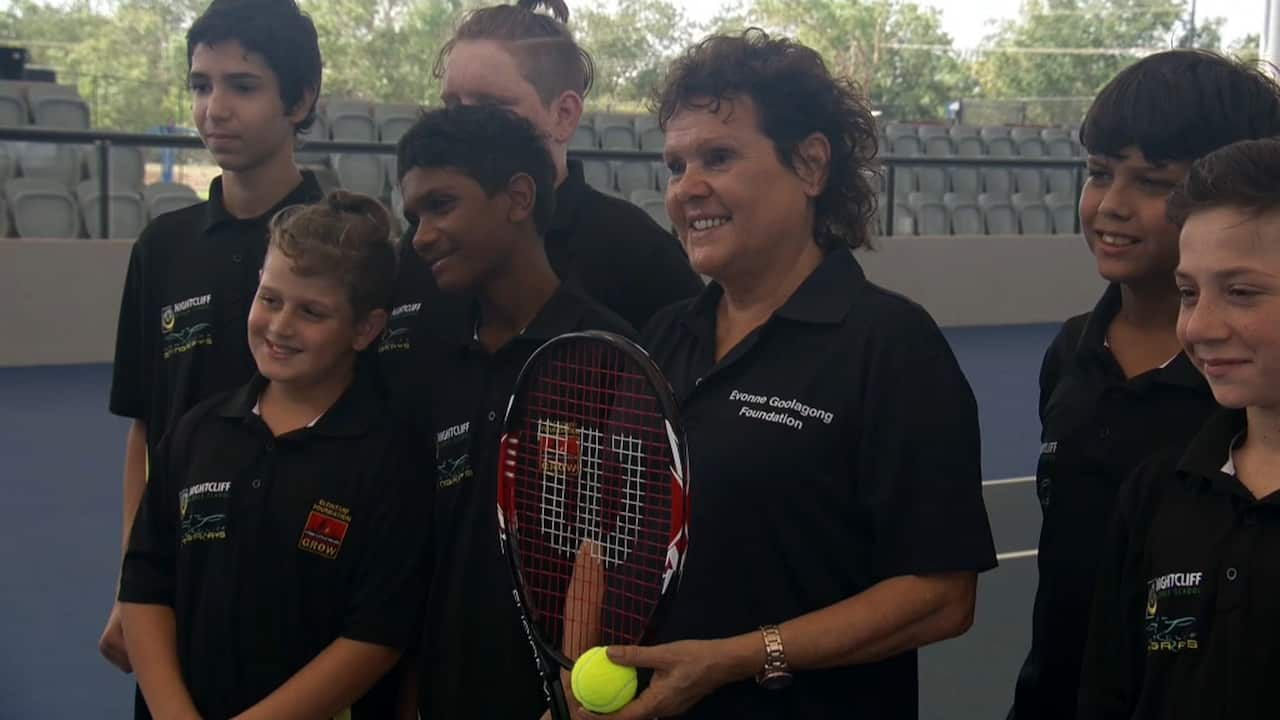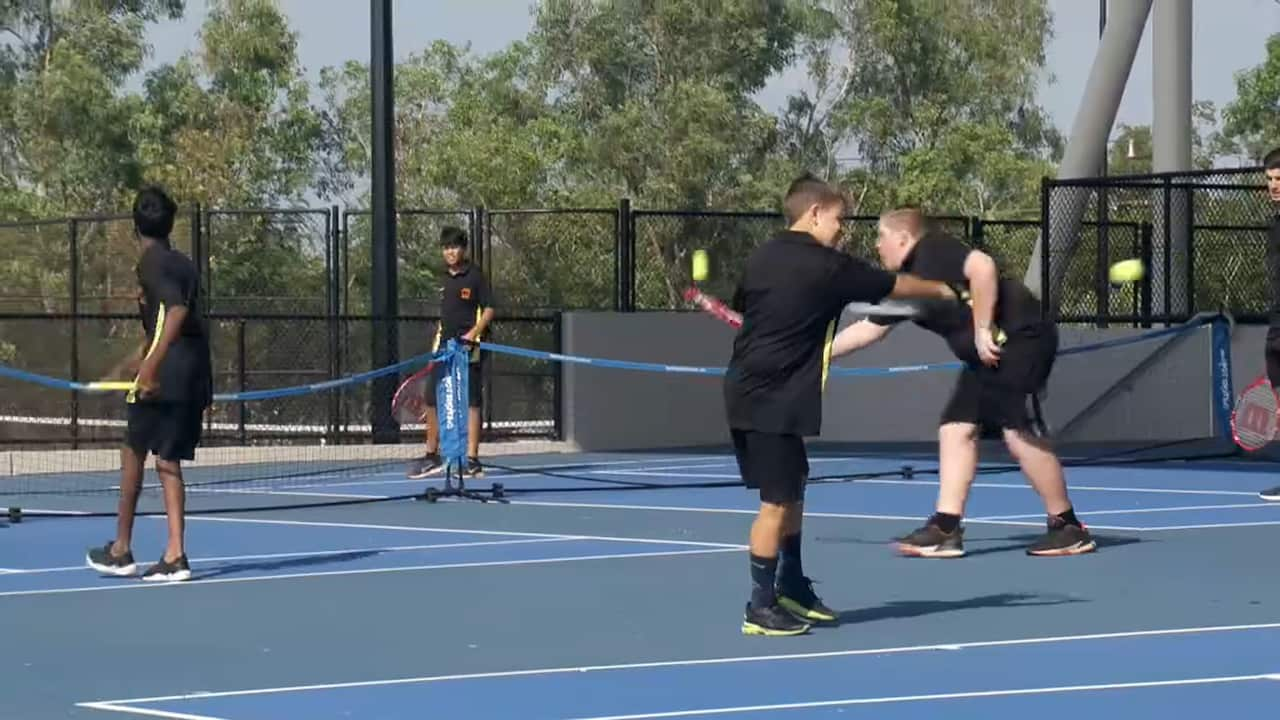Former World No. 1 Evonne Goolagong Cawley hopes a new tennis carnival for Indigenous Australians will inspire a new generation of players.
The National Indigenous Tennis Carnival will be held for the first time in Darwin bringing young sporting talent from across the country for four days in September.
Almost 200 players aged between 10 and 18 are expected to participate in competitive and entry-level events plus traditional cultural activities such as basket-weaving and didgeridoo making.
Ms Goolagong Cawley said the carnival could help find the next Indigenous tennis star.
“I was the first Aboriginal to play in top-level tournaments and it’s great for me to see an increase in Indigenous youth playing these days,” she said.
Ms Goolagong Cawley grew up in the tiny town of Barellan in central New South Wales using a wooden paddle to hit a ball against a water tank for practice.
At 19, she captured the world’s attention, after she won both the French Open and the Wimbledon Championship in 1971. Ms Goolagong Cawley finished her 16-year career with seven Grand Slam wins including four consecutive Australian Open titles.

Australia has not produced another Indigenous Grand Slam champion, though Ashleigh Barty has since climbed into the world top 20.
“This carnival will celebrate these kids and bring everyone from around the country together,” Ms Goolagong Cawley said.
“It’s about creating better health I think just by playing sports and tennis will do that.”
Tennis an option for all Indigenous people
The carnival is part of a wider effort to encourage Indigenous kids to pick up a racquet in communities where other sports like Australian Rules Football are traditionally more popular.
Tennis Australia has been holding coaching clinics in remote communities as far as the Tiwi Islands.

Sam Gibson, the chief executive for Tennis NT, said the programs aim to change perceptions about tennis.
“We hope tennis is seen as an option for all Indigenous people and if you want to play tennis then you have the opportunity to do so," he said.
“It’s about bringing together people and it’s a celebration as much as anything.”
'You don't need a court'
Joe Kelly, the Indigenous programs manager with Tennis NT, said the clinics brought specialised equipment and coaching far flung regions.
“They say ‘Joe, we don’t have a court,’ then I say ‘you actually don’t need one’,” he said
Modified balls and shorter nets allowed players to start a game wherever a flat surface was available.
"It's about getting the sport to the kids in the community and they've received it very well actually," Mr Kelly said.
"In the next three to five years we could see a young Indigenous person coming into a place like Darwin... to become elite."

